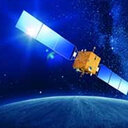Polymorphic catechol-O-methyltransferase gene, soy isoflavone intake and breast cancer in postmenopausal women: a case-control study.
Słowa kluczowe
Abstrakcyjny
OBJECTIVE
Genetic polymorphism Val158Met of catechol-O-methyltransferase (COMT) may contribute to estrogen-induced carcinogenesis of breast cancer. Soy isoflavones possesses chemical structure similar to endogenous estrogen and may promote the carcinogenesis of breast cancer. This study was to investigate the relationship between the polymorphism of COMT, soy isoflavones, and breast cancer in postmenopausal women.
METHODS
In total, 176 patients newly diagnosed histopathologically with breast cancer were recruited from May 2007 to July 2009, and 176 age-matched cancer-free women as controls were selected from a community-based physical check-up population at the same period. The food-frequency questionnaire was used to collect information on soy food intake. Allele-specific polymerase chain reaction (AS-PCR) was employed to analyze genetic polymorphism Val158Met of COMT. Adjusted odd ratios (aORs) and 95% confidence intervals (95% CI) were estimated by multivariable nonconditional logistic regression.
RESULTS
The proportion of susceptible genotype (COMT-LL) in breast cancer patients was significantly higher than that in the controls. After adjusting selected risk factors, the aOR and 95% CI of COMT-LL were 3.14 (1.48-6.66) as compared with those of COMT-HH genotype. The intake of soy isoflavones had a negative correlation with breast cancer in a dose-dependent manner (Chi2 = 28.26, P < 0.001). The women with high intake of soy isoflavones (> or = 16.26 mg/d) and carrying susceptible genotype (COMT-LL), as compared with the women carrying the COMT-HH + COMT-HL genotypes and consuming low level of soy isoflavones (< 16.26 mg/d), had no significantly increased risk for breast cancer [ aOR (95% CI) = 1.66 (0.52-5.24)].
CONCLUSIONS
In postmenopausal women, carrying COMT-LL genotype may increase the risk for breast cancer, and soy isoflavones intake may protect them from breast cancer. But there may be no interaction between intake of soy isoflavones and COMT-LL genotype.






